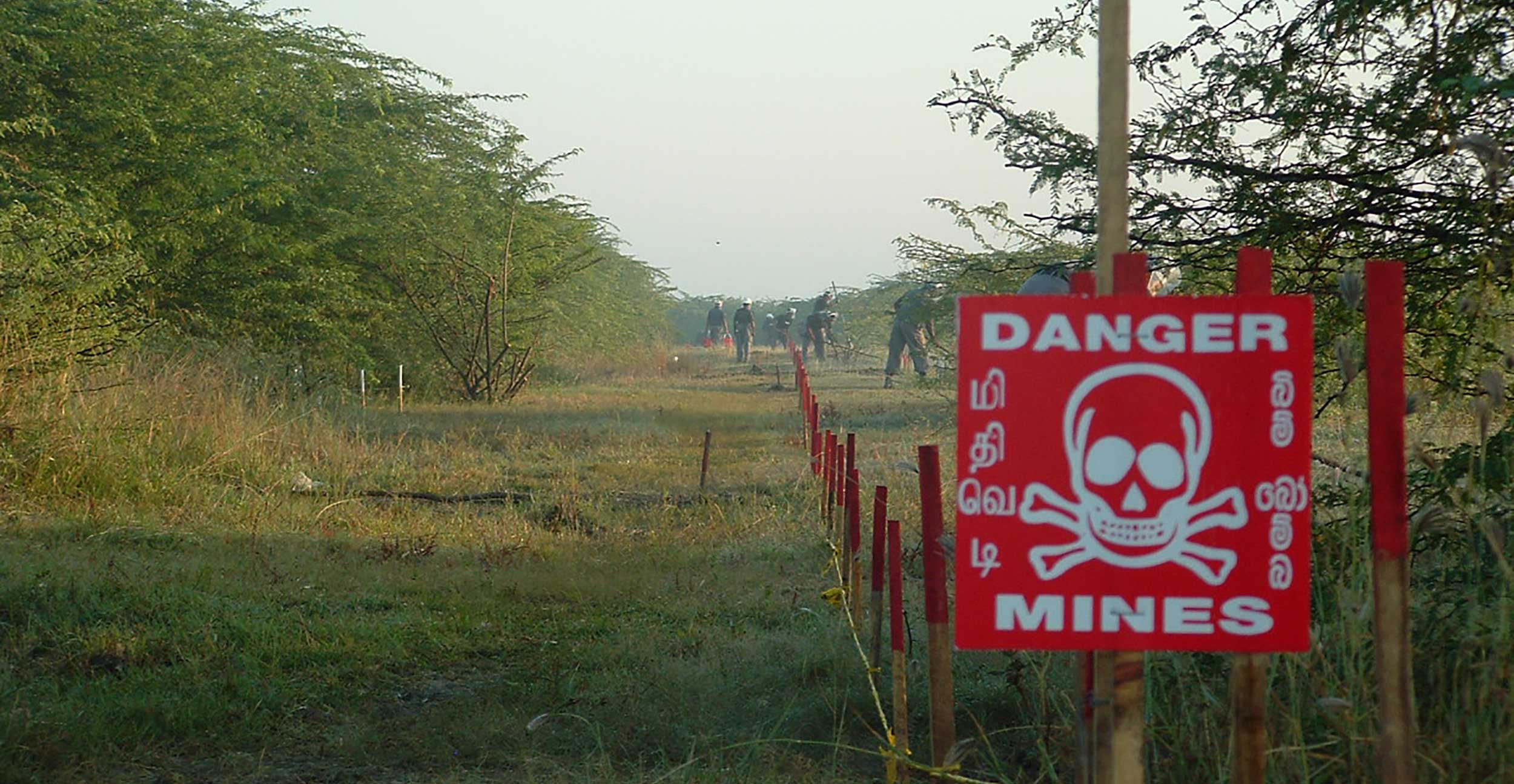
OSU Institute for Global Explosive Hazard Mitigation growth continues
Tuesday, April 5, 2022
Media Contact: Sara Plummer | Communications Coordinator | 918-561-1282 | sara.plummer@okstate.edu
Approximately 5,000 people die each year from mines or other explosive remnants of war across the globe.
Several United States-based non-governmental organizations (NGOs) working to dismantle and neutralize these explosive remnants of war — as well as university organizations — have partnered with Oklahoma State University Center for Health Sciences’ School of Forensic Sciences to form the Institute for Global Explosive Mitigation.
The new institute is the result of collaborations between the School of Forensic Sciences’ Arson, Explosives, Firearms and Toolmarks program and several nonprofit organizations and foundations including Golden West Humanitarian Foundation, Platinum East and Bomb Techs Without Borders, along with the Johns Hopkins University Humanitarian Mine Action Special Interest Group and the Unmanned Systems Research Institute at OSU.
John Frucci, program director of the Arson, Explosives, Firearms and Toolmarks program, said the institute is working to create a team of people from academia and NGOs whose goal is to help further research, development and operations for the mitigation of mines and explosives.
“By working collaboratively with our partners, the OSU Institute for Global Explosive Hazard Mitigation is becoming the world leader in a conscientious endeavor while offering opportunities for students across the globe,” Frucci said. “From land mine mitigation to post conflict trauma support, the institute will have a global impact.”
Other affiliate members of Global Explosive Hazard Mitigation include VTO Labs, Demining Research Community and Deep Analytics.
According to Bomb Techs Without Borders, it’s estimated that there are 110 million land mines across the world, and it will take roughly 1,000 years to dispose of them.
BTWOB was founded by two Army veterans who worked in Explosive Ordnance Disposal — CEO Matthew Howard and Executive Officer Kevin Moultrie.
“Bomb Techs Without Borders is excited to work towards a better world and shape a future free of harm caused by explosive weapons in partnership with OSU Institute for Global Explosive Hazard Mitigation,” Howard said.
Mines and other explosive remnants of war kill or injure innocent people, are converted to improvised explosive devices, and poison the oceans.
“We are excited to be partnering with OSU Institute for Global Explosive Hazard Mitigation to help develop real solutions for removing deteriorating underwater ordnance across the globe before it ends up in our food chain,” said C.J. Cowlin, CEO of Platinum East and former member of the U.S. Navy Explosive Ordnance Disposal unit.
Platinum East primarily works to remove weapons from oceans and Golden West Humanitarian Foundation works to develop technology, training and techniques to dispose of land mines across the globe.
“Golden West Humanitarian Foundation is very pleased and excited partnering Oklahoma State University Institute for Global Explosive Hazard Mitigation,” said Golden West Chief Operations Officer Chris McMurray.
We are leveraging training and technology skills as well as enhancing institute efforts to eliminate explosive threats in environmentally friendly ways.
The Johns Hopkins University Humanitarian Mine Action Special Interest Group strives to relieve human suffering, enable the return of displaced people and promote economic recovery in post conflict areas through the environmentally responsible removal of explosives, propellants and hazardous energetic materials.
JHUMAG draws upon the resources and expertise of Johns Hopkins University to contribute knowledge and expertise to all aspects of mine action, providing support to the global mine action community with trusted research and objective analysis.
